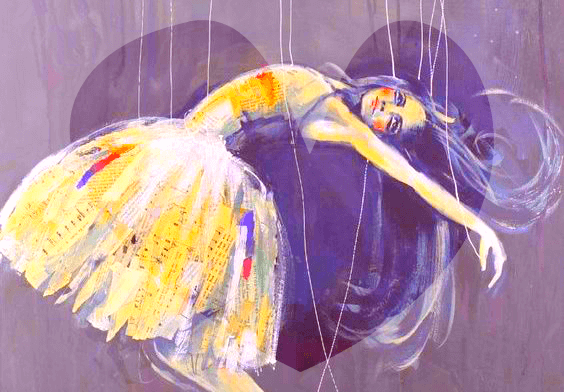Appearances Aren't Deceiving, High Expectations Are Deceiving


Written and verified by the psychologist Gema Sánchez Cuevas
High expectations sometimes end in disappointment. This is what happens with certain people when we put all our hopes onto them and eventually they come crashing down like a house of cards. All this to say that sometimes what fails is not appearances, but our own high expectations.
Maybe you think having high expectations in life is necessary and motivating. Trusting yourself may be risky but you feel you deserve the best. You’re right; it is known that when faced with a particular task, having high expectations generates greater brain activity and even expands our range of responses.
Now, the real problem is not them as motivation but rather what we attribute to them and how good we are at masking the risk they entail. In fact, whether we believe it or not, a lot of us have expectations much higher than reality itself. It’s a very common thing to do. Don’t you know someone who’s eternally disappointed because people don’t meet their unattainably high expectations?
Living a life of lonely perfectionism, idealized relationships and unrealistically loyal friendships only gets you disappointment. You fall into the eternal trap of “I deserve the best” without knowing that the best is not necessarily perfect or ideal. It takes work to attain real happiness.

The trap of high expectations
Some say the concept we have of ourselves is woven by the people who’ve been a part of our lives. Our parents, teachers, friends and co-workers make the fabric of our self-image. If we add to this the expectations we also have for others, we see what a spider web we’re actually weaving.
Let’s think for a moment about this strange irony: many of us are quite like what others expect us to be, but when others don’t act how we want, we despair. It’s the height of unhappiness, no doubt.
In addition, something we see very often in relationships is one person having high, rigid expectations for the other, basically writing a script with everything they will do and say. They affirm themselves this way.

Barry Schwartz, professor of psychology at Swarthmore College and author of such well-known books as “The Paradox of Choice” explains that in terms of relationships or friendship, we should “economize” on expectations or, rather than limit them, focus them on ourselves.
“Don’t expect anything from anyone, expect everything from you.” It has a lot of truth to it. We should first invest in our own personal growth and become our best selves if we want to stop looking for supposedly perfect people.
The Michelangelo effect
Self-help books remind us that “the best is yet to come” and “what you are waiting for is just around the corner”. And yes, these types of approaches fill us with hope and fantasies, opening our eyes to better opportunities. However, we must be careful because thinking there is always something better out there can plunge us into an eternal, fruitless search. A never-ending waiting period.
Building on this idea, we have something we call the Michelangelo effect. When Michelangelo, the great Renaissance artist sees a block of stone, he glimpses inside it a sleeping being for him to wake up. The magic was there, hidden, latent. He only had to take his tools and chip away, top to bottom. He just sculpts his beautiful art with delicate patience, intelligence, originality and love.
Therefore, high expectations are good as long as they are realistic and motivating. But let’s not forget that the best relationships are those that we work on every day. That’s how we create magical, ideal relationships. It’s in the everyday work of filing off the sharp edges creating the curves of commonalities.
High expectations or not, the humble beauty of each person deserves to be uncovered with delicate patience and steady commitment.

High expectations sometimes end in disappointment. This is what happens with certain people when we put all our hopes onto them and eventually they come crashing down like a house of cards. All this to say that sometimes what fails is not appearances, but our own high expectations.
Maybe you think having high expectations in life is necessary and motivating. Trusting yourself may be risky but you feel you deserve the best. You’re right; it is known that when faced with a particular task, having high expectations generates greater brain activity and even expands our range of responses.
Now, the real problem is not them as motivation but rather what we attribute to them and how good we are at masking the risk they entail. In fact, whether we believe it or not, a lot of us have expectations much higher than reality itself. It’s a very common thing to do. Don’t you know someone who’s eternally disappointed because people don’t meet their unattainably high expectations?
Living a life of lonely perfectionism, idealized relationships and unrealistically loyal friendships only gets you disappointment. You fall into the eternal trap of “I deserve the best” without knowing that the best is not necessarily perfect or ideal. It takes work to attain real happiness.

The trap of high expectations
Some say the concept we have of ourselves is woven by the people who’ve been a part of our lives. Our parents, teachers, friends and co-workers make the fabric of our self-image. If we add to this the expectations we also have for others, we see what a spider web we’re actually weaving.
Let’s think for a moment about this strange irony: many of us are quite like what others expect us to be, but when others don’t act how we want, we despair. It’s the height of unhappiness, no doubt.
In addition, something we see very often in relationships is one person having high, rigid expectations for the other, basically writing a script with everything they will do and say. They affirm themselves this way.

Barry Schwartz, professor of psychology at Swarthmore College and author of such well-known books as “The Paradox of Choice” explains that in terms of relationships or friendship, we should “economize” on expectations or, rather than limit them, focus them on ourselves.
“Don’t expect anything from anyone, expect everything from you.” It has a lot of truth to it. We should first invest in our own personal growth and become our best selves if we want to stop looking for supposedly perfect people.
The Michelangelo effect
Self-help books remind us that “the best is yet to come” and “what you are waiting for is just around the corner”. And yes, these types of approaches fill us with hope and fantasies, opening our eyes to better opportunities. However, we must be careful because thinking there is always something better out there can plunge us into an eternal, fruitless search. A never-ending waiting period.
Building on this idea, we have something we call the Michelangelo effect. When Michelangelo, the great Renaissance artist sees a block of stone, he glimpses inside it a sleeping being for him to wake up. The magic was there, hidden, latent. He only had to take his tools and chip away, top to bottom. He just sculpts his beautiful art with delicate patience, intelligence, originality and love.
Therefore, high expectations are good as long as they are realistic and motivating. But let’s not forget that the best relationships are those that we work on every day. That’s how we create magical, ideal relationships. It’s in the everyday work of filing off the sharp edges creating the curves of commonalities.
High expectations or not, the humble beauty of each person deserves to be uncovered with delicate patience and steady commitment.

This text is provided for informational purposes only and does not replace consultation with a professional. If in doubt, consult your specialist.







